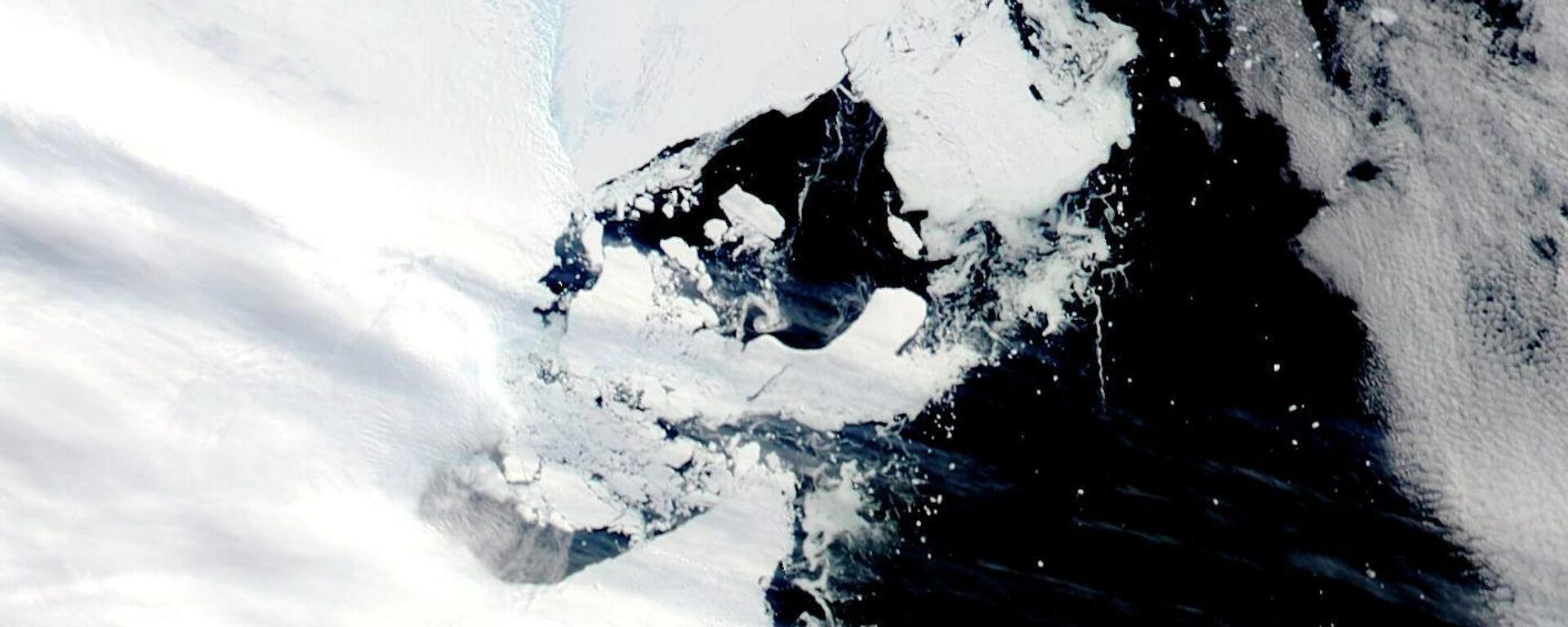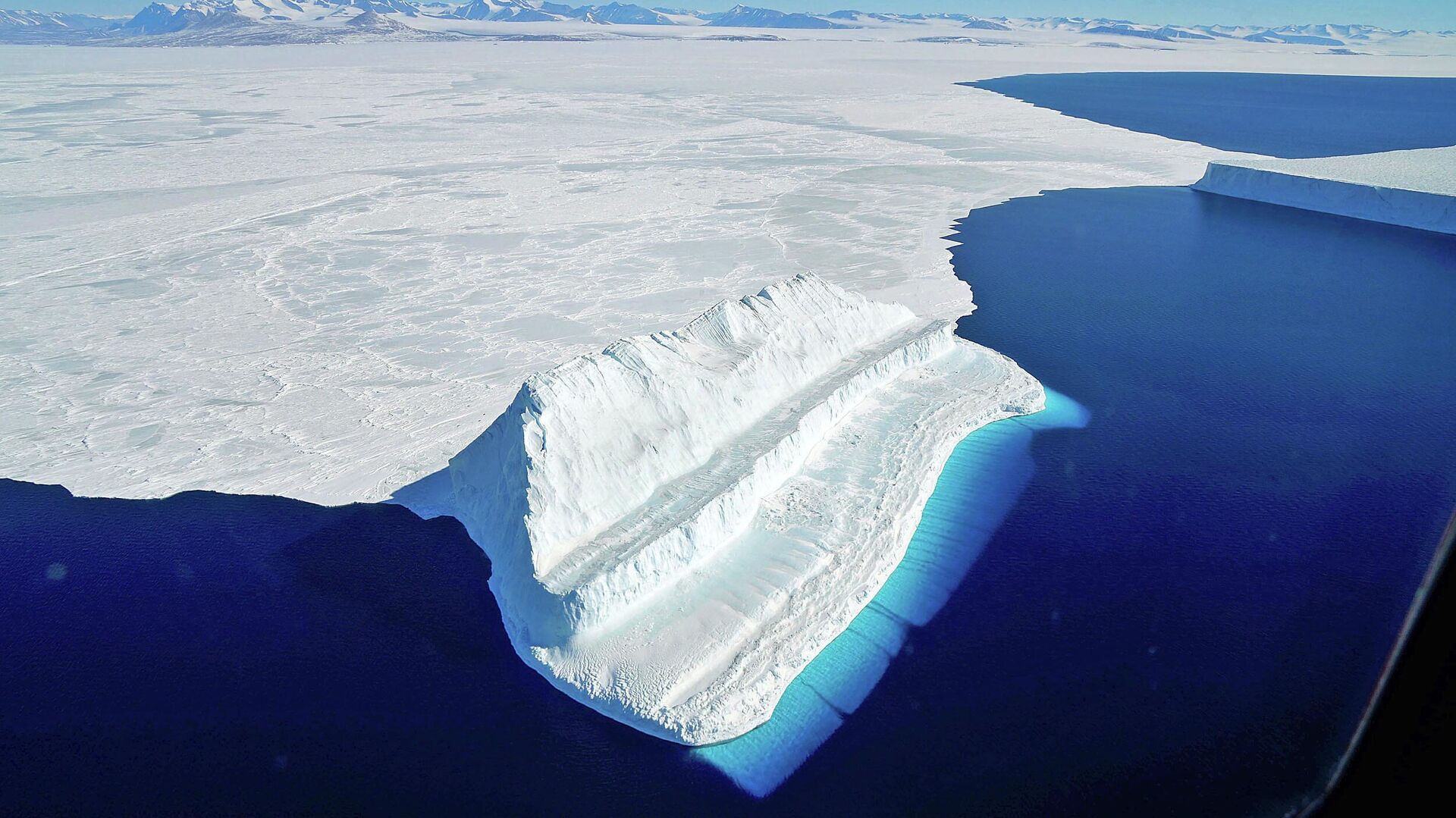https://sputnikglobe.com/20230331/scientists-sound-alarm-about-possible-collapse-of-vital-ocean-currents-near-antarctica-1109016090.html
Scientists Sound Alarm About Possible 'Collapse' of Vital Ocean Currents Near Antarctica
Scientists Sound Alarm About Possible 'Collapse' of Vital Ocean Currents Near Antarctica
Sputnik International
The so-called Antarctic ocean overturning circulation may slow by over 40 percent in the next 30 years "if global carbon emissions continue at the current rate," researchers claim.
2023-03-31T18:56+0000
2023-03-31T18:56+0000
2023-03-31T18:56+0000
science & tech
antarctica
ocean
water
flow
collapse
https://cdn1.img.sputnikglobe.com/img/07e6/05/07/1095333842_0:131:2500:1537_1920x0_80_0_0_7d7b4772efbb3c713c9b17ca96df740c.jpg
The deep ocean water circulation system near Antarctica, which influences climate and marine ecosystems to a considerable degree, may be in peril, a new study suggests.The research, coordinated by Scientia Professor Matthew England of the University of South Wales Sydney (UNSW Sydney), postulates that carbon emissions in the world have a negative effect on the process that involves trillions of tons of cold seawater sinking off the coast of Antarctica and driving the flow of overturning circulation – “a network of currents that spans the world’s oceans” that “carries heat, carbon, oxygen and nutrients around the globe.”The researchers have discovered that the melting of Antarctic ice results in the ocean waters near the frozen continent becoming less dense, which slows the Antarctic overturning circulation.If the current in question were to collapse, the oceans below the 4,000 meter depth would stagnate, as the press release puts it, with Prof. England warning about a “possible long-term extinction of an iconic water mass.”“Such profound changes to the ocean’s overturning of heat, freshwater, oxygen, carbon and nutrients will have a significant adverse impact on the oceans for centuries to come,” he added.
https://sputnikglobe.com/20220812/antarctic-ice-shelf-crumbling-twice-as-fast-as-previously-estimated-study-finds-1099497549.html
antarctica
Sputnik International
feedback@sputniknews.com
+74956456601
MIA „Rossiya Segodnya“
2023
Sputnik International
feedback@sputniknews.com
+74956456601
MIA „Rossiya Segodnya“
News
en_EN
Sputnik International
feedback@sputniknews.com
+74956456601
MIA „Rossiya Segodnya“
Sputnik International
feedback@sputniknews.com
+74956456601
MIA „Rossiya Segodnya“
ocean currents, carbon emissions
ocean currents, carbon emissions
Scientists Sound Alarm About Possible 'Collapse' of Vital Ocean Currents Near Antarctica
The so-called Antarctic ocean overturning circulation may slow by over 40 percent in the next 30 years "if global carbon emissions continue at the current rate," researchers claim.
The deep ocean water circulation system near Antarctica, which influences climate and marine ecosystems to a considerable degree, may be in peril, a new study suggests.
The research, coordinated by Scientia Professor Matthew England of the University of South Wales Sydney (UNSW Sydney), postulates that carbon emissions in the world have a negative effect on the process that involves trillions of tons of cold seawater sinking off the coast of Antarctica and driving the flow of overturning circulation – “a network of currents that spans the world’s oceans” that “carries heat, carbon, oxygen and nutrients around the globe.”
“Our modelling shows that if global carbon emissions continue at the current rate, then the Antarctic overturning will slow by more than 40 percent in the next 30 years – and on a trajectory that looks headed towards collapse,” England said as quoted in a press release by UNSW Sydney.
The researchers have discovered that the melting of Antarctic ice results in the ocean waters near the frozen continent becoming less dense, which slows the Antarctic overturning circulation.

12 August 2022, 04:00 GMT
If the current in question were to collapse, the oceans below the 4,000 meter depth would stagnate, as the press release puts it, with Prof. England warning about a “possible long-term extinction of an iconic water mass.”
“Such profound changes to the ocean’s overturning of heat, freshwater, oxygen, carbon and nutrients will have a significant adverse impact on the oceans for centuries to come,” he added.


